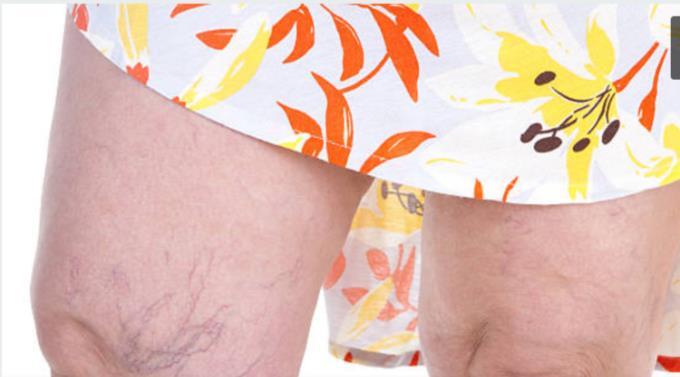Pregnant women have leg pain during pregnancy is a common phenomenon. In addition, you may also experience edema, swelling or varicose veins ..., which affects walking.
Morning sickness, fatigue and back pain are the most common symptoms during pregnancy. In addition, leg problems, such as leg pain during pregnancy, are also common, especially during the last 3 months of pregnancy. However, don't worry too much because these things will disappear after you give birth.
1. Pregnant women have leg pain and swelling
Increased hormone levels, which stimulate the body to produce more fluids during pregnancy, can make you feel uncomfortable, leading to leg pain, swelling or even swelling in pregnant women. However, your body needs this amount of liquid to be able to transport nutrients and oxygen to your baby.
This is a fairly common phenomenon during pregnancy. However, if you notice swelling in your face and hands, decreased vision, severe or persistent headache and gain more than 0.5 kg a day, you should see your doctor because they implicitly signal that you are likely to have the preeclampsia , a serious complication.
Revealing how to reduce leg pain and swelling for pregnant women
Raise your legs as much as possible: Try to elevate your legs 15 - 30cm from the heart for 15 - 20 minutes to help blood flow to the heart and lungs.
Lie on your side instead of lying on your back while sleeping: This reduces the pressure on the lower aorta, the largest vein leading to the heart.
Hydration: Dehydration will make the condition worse.
Weight monitoring: During pregnancy, you will gain from 10 - 15kg. If you gain too much weight, the swelling will get worse.
Improve blood circulation in your ankles with leg swings: Try sitting with one leg lifted. Rotate the ankle 10 times to the right, then to the left. Switch legs and repeat 10 times.
Ice pack for ankle: Apply ice to ankle for 15 - 20 minutes every 30 minutes to an hour.
2. Leg pain during pregnancy due to cramps
Many pregnant women have leg pain during pregnancy caused by cramps. This may be due to lack of calcium and excess phosphorus. The cramps usually appear at night when the legs and feet are tired from being active all day long.
To avoid cramping pregnancy leg pain, eat a lot of dairy foods or ask your doctor to prescribe calcium supplements. Women with leg cramps are also due to lack of potassium. Bananas and dried apricots are both rich in potassium that you should try.
In addition to dietary changes, pregnant women can prevent cramps during pregnancy by increasing blood circulation such as walking 15-20 minutes at night. Avoid standing or sitting in one position for too long as this causes fluid to build up, making your legs feel heavy.
If the leg pain in pregnant women is caused by cramps, try to relieve the pain by applying heat to the calf. The best way to alleviate the pain is to be gentle. If it's midnight and you can't get out of bed, try holding your feet with both hands and gently pressing your thumb against the soles of your feet.
3. Pregnant women have leg pain and varicose veins

About 20% of women experience varicose veins during pregnancy , which includes ugly, blue and swollen blood vessels. The reason is that the body produces more blood in the circulatory system, thereby increasing pressure on the walls of the veins, causing the veins to stretch. You are more likely to have leg pain during pregnancy due to varicose veins if you gain a lot of weight, stand for a long time or it could be hereditary.
With varicose veins, pregnant women often experience leg pain, heaviness, fatigue and pressure. These symptoms usually subside after giving birth but they tend to get worse with each pregnancy.
Like other leg problems, increased blood circulation can help ease discomfort and even prevent varicose veins. For this reason, you should walk every day or do light exercises like swimming or cycling. If you can't exercise, try to sit on a bench several times a day; Use your legs to kick back and forth, this also promotes better blood circulation. After giving birth, you can choose either laser therapy or surgery to remove the vein.
4. Swollen feet due to leg pain
In addition to the discomfort of foot pain during pregnancy, you will also find your feet get bigger, slimmer, and unable to fit regular shoes. It is not uncommon for a pregnant women's shoe size to increase.
In addition to needing larger shoes, your feet need extra support. The focus constantly shifts as you gain weight. Therefore, you need to wear shoes that fit and not high heels.
Some tips to buy shoes for pregnant women with leg pain
Going to buy shoes at the end of the day. Feet tend to swell in the evening.
Check that the size of the shoe fits your foot before leaving the store.
Choose shoes with square or round toes. Avoid shoes with a pointy nose.
Buy comfortable boots in the calf area because your calves can swell.












